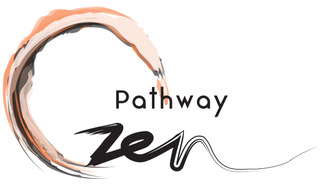Code of Conduct and processes for Pathway Zen practitioners, including the Zen Precepts.
Official Grievance Procedure
Pathway Zen Inc. is a not-for-profit association incorporated under the Associations Incorporation Act 1981 (Qld). In accordance with a legislative requirement for the rules of associations to include a grievance procedure, we have adopted the grievance procedure which now forms part of the ‘model rules’ for associations (our governing rules).
The grievance procedure applies to members of Pathway Zen where there is a dispute under the rules of the association between a member and: the association; another member; or the management committee. The rules of association deal with matters such as: membership and voting rights; appointment and removal of office holders; management committee functions; meeting procedures and decision-making; and financial management.
The grievance procedure commenced on 1 July 2024. It can be viewed at sections 12A-12F of the model rules of association on the Office of Fair Trading website: Model rules – OFT incorporated associations forms and guides – Publications | Queensland Government
General Ethical Guidelines
As a lay community of Zen practitioners, we the members and teachers of Pathway Zen and Sanbo Zen International resolve to conduct our lives and our relationships taking the Three Pure Precepts as our guiding principle. These are 1) to avoid all that is harmful, 2) to foster and promote all that is good, and 3) to purify our minds and seek the liberation of all sentient beings in all our thoughts, words, and actions.
To align with the three pure precepts, we do our absolute best to: 1) Honor all life, do not kill, 2) Respect everyone’s property, and not steal, 3) Speak truthfully, and not lie, 4) Respect our own and other people’s relationships and commitments, and not misuse sex, 5) Keep a clear mind, and not abuse drugs and intoxicants, 6) Uphold the good name of others, and not engage in harmful speech, 7) Live in truthful humility, do not praise ourselves or put down others, 8) Be generous, and not be stingy with material or spiritual goods, 9) Cultivate a peaceful heart, and not indulge in anger, and 10) Uphold the Buddha Dharma, and not defame the Three Treasures (Buddha, Dharma, Sangha)
When there is non-alignment or disagreement between these precepts, and the appropriate course of action is not obvious, then we always refer back to the pure precepts: avoid harm; do good; and seek the liberation of all sentient beings.
The Zen Precepts:
The Three Refuges:
- We take refuge in the Buddha
- We take refuge in the Dharma
- We take refuge in the Sangha
The Three Pure Precepts:
- To do no harm
- To do good
- To save all beings
The Ten Precepts:
- A follower of the way does not kill, but rather cultivates and encourages life.
- A follower of the way does not take what is not given, but rather cultivates and encourages generosity.
- A follower of the way does not misuse sexuality, but rather cultivates and encourages open and honest relationships
- A follower of the way does not lie, but rather cultivates and encourages truthful communication.
- A follower of the way does not intoxicate self or others, but rather cultivates and encourages clarity.
- A follower of the way does not slander others, but rather cultivates and encourages respectful speech.
- A follower of the way neither extols self nor demeans others but rather cultivates awareness of the interdependent nature of self.
- A follower of the way does not attach to anything, even the teaching, but rather cultivates mutual support and shares the dharma with all beings.
- A follower of the way does not harbor ill-will, but rather cultivates and encourages lovingkindness, understanding and forgiveness.
- A follower of the way does not turn away from the Three Refuges, but rather cultivates and encourages taking refuge in them.

